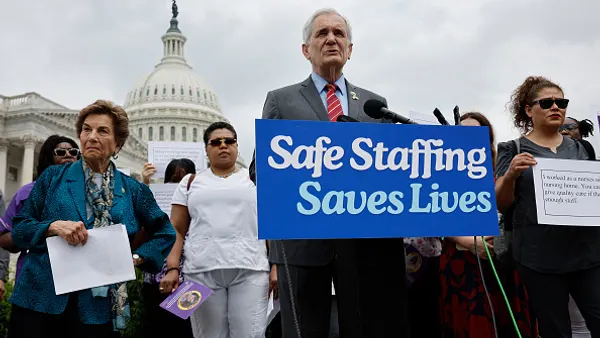Dive Brief:
- A majority of employees say supervisors don't care about their ideas, opinions and emotional state at work, according to findings from Eagle Hill Consulting. In its Dec. 16 report, the company encouraged HR professionals to "think beyond the human resources function" to cure misperceptions about the value of employee experience.
- The management consulting firm identified four factors of exceptional employee experience (or EX): interpersonal, occupational, physical and technological – and suggests broad, but specific, action for improvement.
- Effects of employer engagement are reflected in the research. "[O]ne out of every two employees (53%) surveyed say they have considered leaving their jobs in the past year. More than a quarter (29%) of respondents said they would leave if offered a comparable position elsewhere with similar pay and benefits."
Dive Insight:
The research shows that employers may miss opportunities to deliver an exceptional employee experience and that there might even be some confusion about what employee experience is.
"Organizations … often mistake EX for employee engagement, benefits or performance management," said Melissa Jezior, president and CEO of Eagle Hill Consulting, in a statement, but "EX is all about how employees think and feel about their day-to-day interactions within their organization."
That disconnect can have strong implications: positive EX is important for engagement and retention, but it's reflected in client service too. A July survey from Eagle Hill found that dissatisfied employees were far more likely to share negative commentary about the quality and delivery of an employer's services and outcomes. A recent report from Momentive reached a similar conclusion, opining that employee experience and customer satisfaction are intricately linked.
HR can work with supervisors and others to improve employee experience, but it's not a one-time undertaking, according to the Eagle Hill report. Instead, common organizational priorities and goals expressed through a culture of checks and balances are the building blocks of exceptional EX, the report shows — and "[t]he work of EX never ends."














